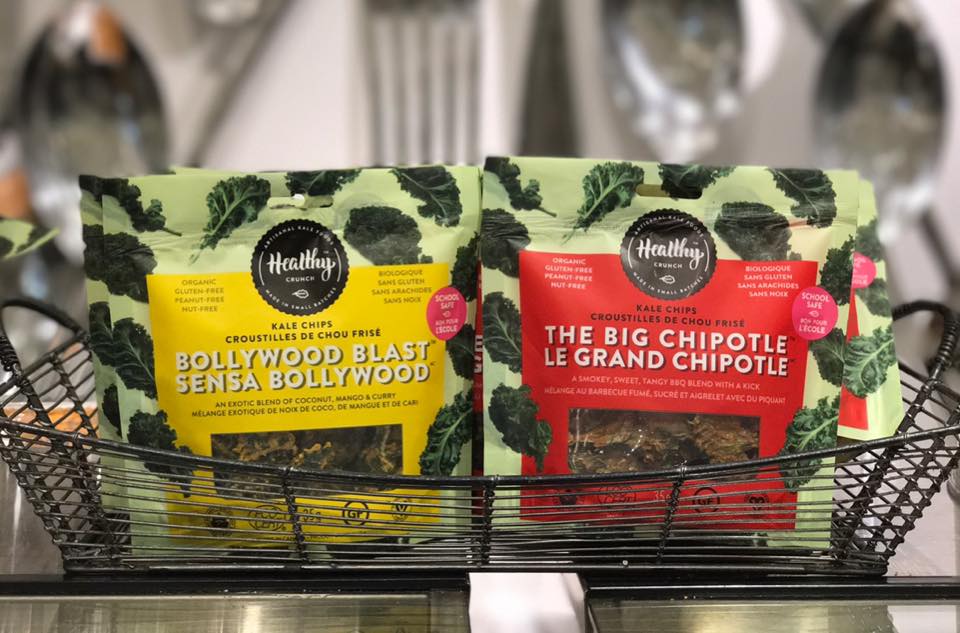For most of us, a beet chip will always be better than a potato chip, but some experts say, the recent influx of so-called “healthy” vegetable chips is confusing many.

Desiree Nielsen, a Vancouver-based registered dietitian, says when we associate the words “vegetable” and “healthy,” this is nothing but a marketing ploy.
“If you deep fry anything, regardless of original nutrient content, it is no longer a healthy option,” she tells Global News. “You might get a few extra antioxidants, if they survived the high heat of frying, which is not guaranteed, but you are much better off eating the actual vegetable.”
READ MORE: Recipes for healthy snacks you can eat guilt-free
In a study conducted by U.K.-based kitchen retailer Wren Kitchens and registered nutritionist Charlotte Stirling-Reed in June, the report found not all sugar-free and low-calorie foods were actually healthy.
Looking at things like sugar-free and low-calorie beverages, kids’ fruit roll-ups, and vegetable chips, the report found some brands of veggie chips had more fat than regular potato chips and even a chocolate bar, HuffPost U.K. reports.
According to the report, a 40-gram serving of Tyrrells English Crisps had more fat (14.3 grams) than plain Pringles and a Mars Bar.
Treating chips as snacks
Abbey Sharp, a Toronto dietitian and food blogger, says the problem isn’t eating vegetable chips, it’s treating them like a healthy snack.
“By comparing their nutrition facts, yes, some veggie chip brands are lower in calories, fat, and salt, but when they’re not consumed in moderation, you could be taking in a lot of excess calories,” she tells Global News. ” I always suggest you never eat straight from the bag, but rather, pour yourself a mindful portion and enjoy each bite.”
She also suggests being mindful of how you are eating these chips. Creamy dips are often high in calories and fat — she suggests hummus or salsa instead.
She also says these chips are part of a “health halo” effect.

Get weekly health news
“The problem with health halos is … we overestimate the healthfulness of an item based on a single claim, like low in calories, low in fat, all natural, healthy, vegetable etc.,” she continues. “At the same time, we may also feel like we haven’t really gotten what we truly craved, so we eat the bag of veggie chips only to be drawn to the potato chips you really want.”
Can we have healthy chips?
Nielsen adds when you’re shopping for healthy chips, stick to ones that are dehydrated or baked.
“Dehydrated kale chips can be a healthy and tasty snack; some have a ton of salt so be mindful. And beware the ‘veggie straws’… those things are essentially Pringles.”
READ MORE: Can you train your brain to crave healthy food in 6 months?
Sharp adds to look for chips that are made with whole grains (not multi-grain) and check the fibre and sodium content. Other terms to watch out for include hydrogenated or partially hydrogenated oils.
“Avoid the flavoured chips,” she explains. “They may look super enticing, but the more flavourful the chip, the more likely the sodium will be higher. They also often have artificial flavours and sugar added to them.”
Looking for the ‘healthy’ chips
But it turns out there are chips that are still considered healthy treats in the eyes of experts, as long as you consider them treats. And if you still want those potato chips, just have them — but be mindful of your portions.
Sharp recommends black bean chips by Beanitos (five grams of protein, five grams of fibre and low in sodium) and the ever-popular Terra Vegetable Chips. These chips, she adds, have no added salt and have twice the fibre of regular salted chips.
READ MORE: How to save hundreds of calories from your fast food meal
Neilsen recommends B.C.-based Hardbite Beet Chips that are lightly salted and made with non-hydrogenated sunflower oil, as well as Solar Raw Food and The Healthy Crunch Company for kale chips.










Comments
Want to discuss? Please read our Commenting Policy first.